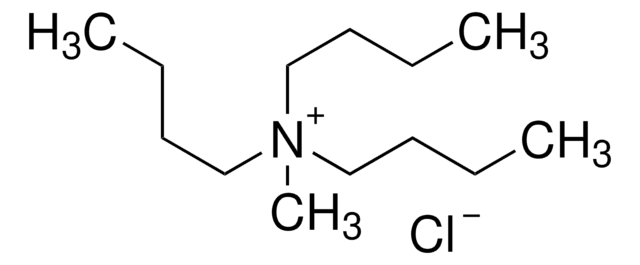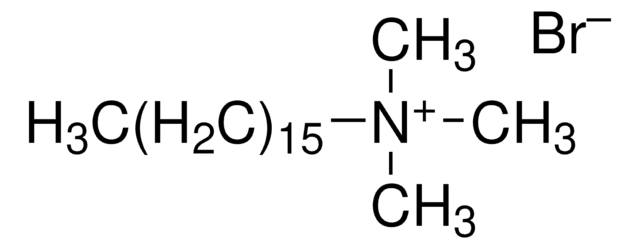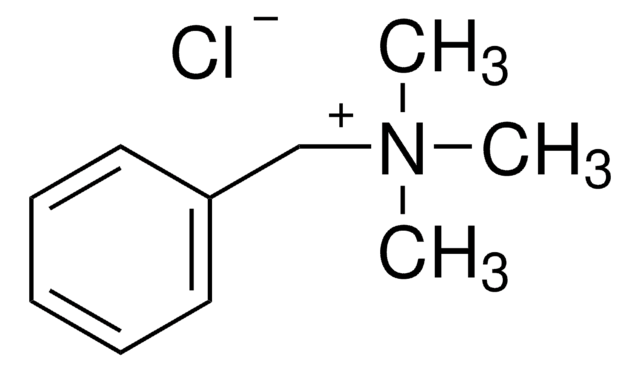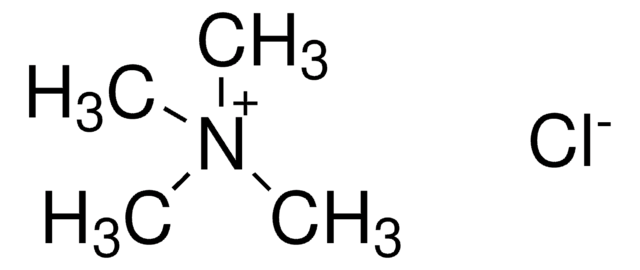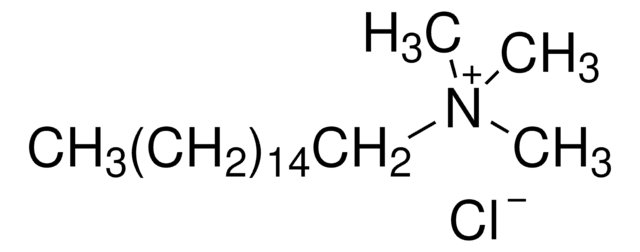255165
Tributylmethylammonium chloride solution
75 wt. % in H2O
Synonyme(s) :
Methyltributylammonium chloride solution
About This Item
Produits recommandés
Pression de vapeur
7.9 mmHg ( 25 °C)
Niveau de qualité
Concentration
75 wt. % in H2O
Indice de réfraction
n20/D 1.4682
pb
152 °C
Densité
0.964 g/mL at 25 °C
Chaîne SMILES
[Cl-].CCCC[N+](C)(CCCC)CCCC
InChI
1S/C13H30N.ClH/c1-5-8-11-14(4,12-9-6-2)13-10-7-3;/h5-13H2,1-4H3;1H/q+1;/p-1
Clé InChI
IPILPUZVTYHGIL-UHFFFAOYSA-M
Description générale
Application
Mention d'avertissement
Warning
Mentions de danger
Conseils de prudence
Classification des risques
Acute Tox. 4 Dermal - Aquatic Chronic 2 - Eye Irrit. 2 - Skin Irrit. 2
Code de la classe de stockage
10 - Combustible liquids
Classe de danger pour l'eau (WGK)
WGK 2
Point d'éclair (°F)
Not applicable
Point d'éclair (°C)
Not applicable
Équipement de protection individuelle
Eyeshields, Gloves, type ABEK (EN14387) respirator filter
Faites votre choix parmi les versions les plus récentes :
Déjà en possession de ce produit ?
Retrouvez la documentation relative aux produits que vous avez récemment achetés dans la Bibliothèque de documents.
Notre équipe de scientifiques dispose d'une expérience dans tous les secteurs de la recherche, notamment en sciences de la vie, science des matériaux, synthèse chimique, chromatographie, analyse et dans de nombreux autres domaines..
Contacter notre Service technique